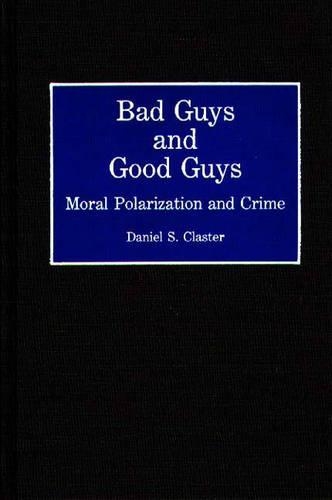
Bad Guys and Good Guys: Moral Polarization and Crime
(Hardback)
Publishing Details
Bad Guys and Good Guys: Moral Polarization and Crime
By (Author) Daniel S. Claster
Bloomsbury Publishing PLC
Praeger Publishers Inc
17th November 1992
United States
Classifications
Tertiary Education
Non Fiction
364
Physical Properties
Hardback
320
Description
Are victims "good guys" and criminals "bad guys" Sometimes - but, often, the public's stereotypes and perceptions of offenders, victims, and groups are quite complex. In spite of widespread concern about crime, there is great resistance on the part of the public and its elected representatives to certain measures that would seem to be sensible ways of ameliorating the problem. How can this resistance be explained At the sentencing, and reality therapy are embraced by the public. Claster shows how these contradictions are not mutually exclusive and explains the importance of moral polarisation in the way the public perceives crime and victims. Claster begins by examining the various ways crime is perceived moralistically. He then examines stereotypes about the participants in a crime, which are illustrated by references to popular fiction as well as scholarly analysis, to the media, to public opinion surveys, and to statements of public officials. After examining the criminal as "bad guy" and "good guy" he reviews the positive as well as the negative stereotypes of victims' groups (gangs, families, and immigrant and occupational subcultures). Claster then examines psychological and sociological explanations of the process underlying these stereotypes; he provides cases to illustrate how pervasive the process, of what he calls "moral polarisation", is; and he concludes by exploring the practical implication of moral polarisation. This work is intended to be of interest to scholars in criminology as well as those involved with criminal justice policy.
Author Bio
DANIEL S. CLASTER is associate professor of Sociology, Brooklyn College of the City University of New York. He has served as co-editor of Social System Perspectives in Residential Institutions.
